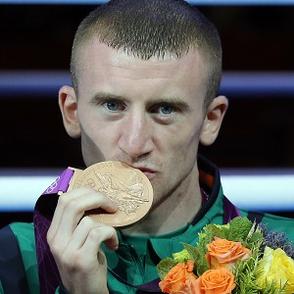The eminent journalist and provocateur Eamonn Mallie has caused a small fuss in the last few days by condemning Northern Ireland's Olympic celebrations. Despite the fact that London 2012 saw the greatest ever success for Northern Irish sportsmen, he has argued in his blog that the province's celebration of their achievements was shamefully divided, with the Belfast boxers Paddy Barnes and Michael Conlan, who won bronze medals boxing for Ireland, being festooned in green, white and gold in Belfast, while the celebrations of the three Coleraine rowers, Alan Campbell and the Chambers brothers were to be decked out in red, white and blue during their own hometown celebration.
You can listen to his despair on his website here: http://eamonnmallie.com/2012/08/bigots-in-victory-too-how-pathetic-are/
This morning I was asked to contribute to the Stephen Nolan Show on Radio Ulster this morning, as a counterpoint to Eamonn. As I didn't really disagree with what he was saying I'm not sure I was a particularly enlightening contributor, but I thought it might be worth looking at his points in a little more detail here (it was a very brief discussion).
Eamonn argued that the achievements of the Olympians has been undermined by the sometimes begrudging reception they received, pointing out that the Dublin media had mostly ignored the achievements of the three rowers who were representing Team GB. He also wanted to know why there wasn't a joint celebration of all of Northern Ireland's Olympians, a celebration that didn't divide by flag.
My own brief contribution to the debate amounted to saying that that was indeed a good idea but to also say why shouldn't the boxers be celebrated in Belfast and the rowers in Coleraine? Why shouldn't they be acclaimed in their own communities? Isn't the challenge for Northern Ireland to get to the stage where we don't see one community's celebration as in some way diminishing for the other?
There is some talk of Stormont organising a large celebration of the province's Olympians following the completion of the Paralympics, which hopefully will address Eamonn's main contention - that each community is only celebrating its own and not embracing those from the other side. I hope that does indeed take place. In some senses it strikes me that this debate goes to the very heart of what I wanted to talk about in Whose Side Are You On? The idea that sport is and always has existed in a political framework, and as a result has been tugged and twisted to fit political agendas. That twisting and buckling is the story of Northern Irish sport over the last half century (and more).
But that's not the only story sport tells. It also reveals that sometimes we can find ourselves finding common cause with "the other side" through sporting heroes - from George Best to Dennis Taylor, Barry McGuigan to Alan Campbell and Paddy Barnes. It also tells us that sport can be used as a vehicle for attempting to heal divisions, whether it be in the work of grass roots organisations such as Peace Players International or in the way local Irish League football clubs have forged associations with GAA clubs.
One of the points Eamonn made this morning was about symbolism. He reminded Radio Ulster listeners that the DUP First Minister Peter Robinson has gone to a GAA match and the Deputy First Minister Martin McGuinness has turned up at Windsor Park. These are symbols of politicians embracing the sporting environments of the other community. Sport allows for these gestures of reconciliation because it has so often been a point of division. It can be a vehicle for both.
There's another story that sport tells too, one that sometimes gets overlooked in Northern Ireland because we are so keyed to symbolism. That's the story sport tells about sport. The reasons why an Olympic celebration should matter in the first place is because of the efforts of five Olympians from the province. They may well have wanted to win a medal for the country they were representing but it's not difficult to imagine that in the first place they wanted to win a medal for themselves as a recognition of their own effort. Sportsmen and women are sportsmen and women because they love sport. Some may have political opinions, some may not. But those come second to the desire to compete. Sport is about competition first and foremost. The flags are an afterthought.

No comments:
Post a Comment